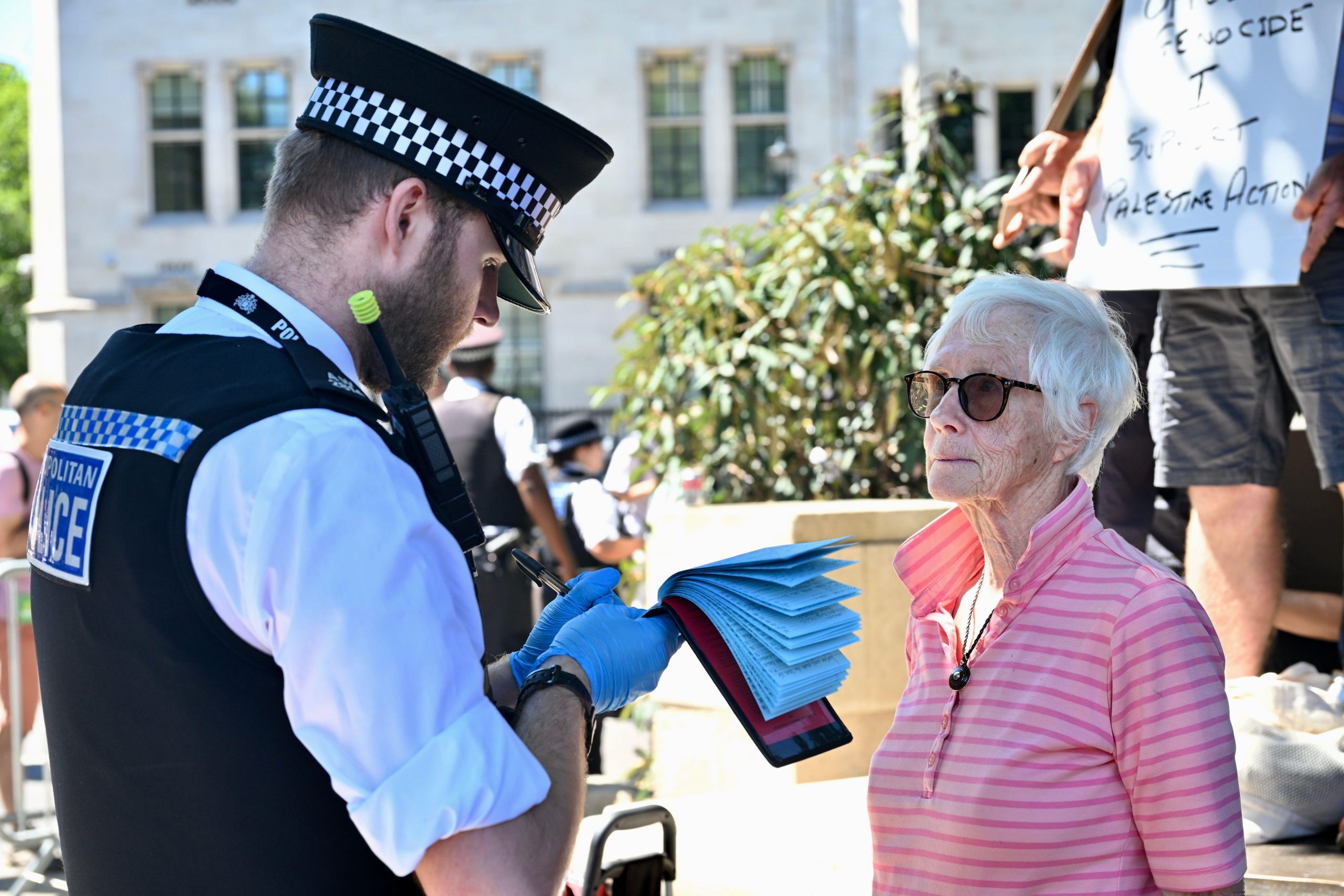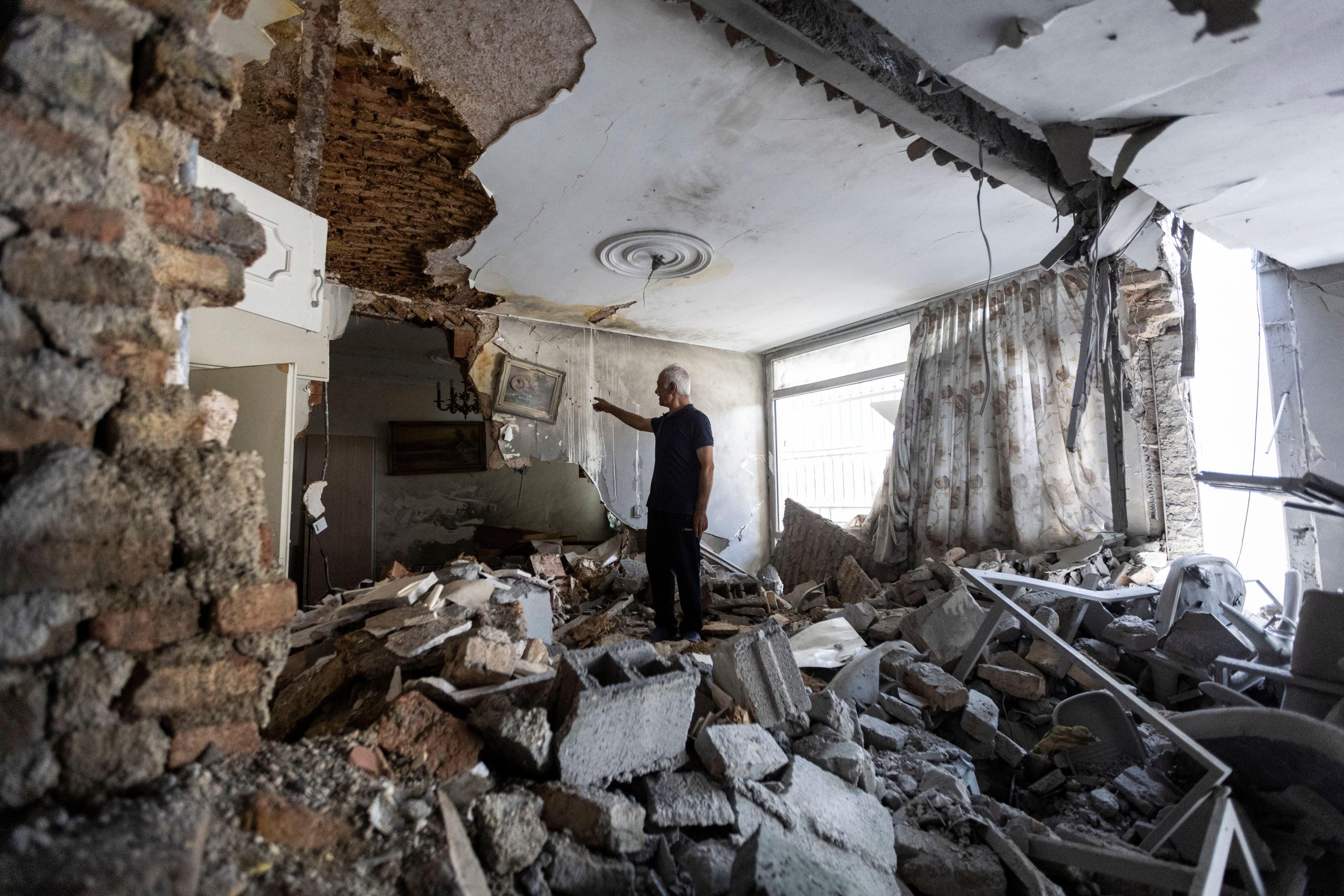The ideological battle for Egypt’s soul has intensified in recent weeks. Rising tensions threaten to polarise a country wracked by deep divisions over the role Islam will play in the “new” Egypt. Many of the revolutionary activists who participated in the January 2011 mass uprising envisioned the new Egypt as a secular, civil state. These hopes were dashed by Islamist victories in the post-revolution parliamentary and presidential elections. Islamists won about two-thirds of 508 seats in the parliamentary election at the end of last year — the Muslim Brotherhood won 38 per cent of seats, and the Salafist Al Nour party secured 29 per cent. As an Islamist-dominated assembly debates the country’s new constitution — a charter that will shape Egypt’s future — liberals fear that Egypt may evolve into an Iranian-style theocracy.

— Egyptian Salafists filled Tahrir Square earlier this month to demand that Sharia law be enshrined in the country’s constitution (Demotix)
Thousands of protesters filled Tahrir Square on 8 November to demand that Islamic Sharia law be enshrined in Egypt’s new constitution. Sharia has been the subject of heated debate among members of the panel engaged in drafting the constitution. Liberals favour preserving the wording of the 1971 Constitution which states that “the principles of Sharia are the basis of all legislation”. Hardline Islamists are demanding the wording be changed to declare that “the rulings of Sharia” law serve as the source of legislation. This more stringent interpretation of Islamic law would include implementing Hudood laws — a set of punishments under Islam’s Penal Law that include punishing theft by cutting off a hand, stonings for adultery, and death for apostates (former Muslims who reject the faith).
The inflexibility of Islamist members on the Constituent Assembly over this issue led liberal rights activist Manal El Tibi to resign from the assembly in September.
As the 12 December deadline for the document approaches, thirty liberal members of the 100-member assembly have quit in protest, complaining that their voices were being ignored by Islamist members determined to use the constitution to turn Egypt into an Islamic state. Representatives from Egypt’s churches also withdrew from the panel on Saturday, rejecting the idea of a “religious state”.
Salafists have wrangled with liberal assembly members over other articles of the draft charter, namely those on the role of Islamic institution Al Azhar (Liberals want to establish the 1,000-year-old Sunni institution as the only authority allowed to interpret Sharia), on women’s rights, and civil and religious freedoms. Liberals are concerned that a strict interpretation of Sharia may usher in restrictive policies for women, such as the imposition of an Islamic dress code, and forced segregation between men and women in public.

— Egyptian woman in Tahrir Square carries sign saying “our rights, now” during marches for women’s rights in Cairo’s Tahrir Square last year (Demotix)
Liberals hoped to eliminate all forms of gender-based discrimination in the new charter, but activist Ziad Ali says that the new charter “is a dismal compromise, which is no better than the previous (1971) constitution.” The draft constitution makes a patronising promise to “help women strike a balance between their family duties and their work in society”, — a pledge slammed by rights activists as “discriminatory” as it would make women second-class citizens.
While women’s rights have been the bone of contention in the constitutional debate, religious freedom too has been at the centre of the controversy. Article 8 on freedom of belief has been revised to read: “Freedom of belief is absolute and religious rights are to be practised if they do not disturb public order”. The added provision, “if they do not disturb public order”, has worried secularists who describe it as “restrictive”. The previous constitution simply stipulated that “the state shall guarantee the freedom of belief and the freedom of practice of religious rites”.
The draft constitution only recognises three religions — Islam, Christianity, and Judaism. According to Article 8, “The state shall ensure freedom to establish places of worship for adherents of Abrahamic religions in accordance with the law.” Adherents to non-Abrahamic faiths will be denied the right to build places of worship.

— Egyptian secularists rallied in Tahrir Square in October to protest against Islamist control of the country’s new constitution (Demotix)
Especially worrying are anti-blasphemy laws outlined in draft articles 40 and 38, which prohibit the “defamation of messengers and prophets”, without specifying what could be classed as “defamation”. The vague definition leaves room for wide interpretation of the law. The draft charter also does not outline what counts as “blasphemous”, making it unclear what would be punishable by law. “With no clear definitions, such laws may potentially threaten and restrict free speech”, complains Mona Makram Obeid, a liberal former MP.
While the draft constitution falls short in the realms of religious freedoms and women’s rights, it makes sizeable progress when it comes to press freedom. The draft includes draft articles safeguarding freedom of thought and expression — and if it is endorsed by a popular referendum next month — it would also protect the right of journalists to work freely through a ban on jail terms for publication offences. It would also allow for new media organisations to launch without restrictions.
While allowing more room for press freedom, the draft charter severely restricts freedoms in many realms, and its vague and ambiguous language opens the door to potentially harmful interpretations — making it a disappointment for some of the pro-reform activists who led last year’s protests in Tahrir Square.
“The Islamists have stolen the revolution. The new constitution is a far cry from the progressive, tolerant state that we had aspired to create”, says revolutionary activist Hazem Mahmoud, who works for the Ministry of Foreign Trade.
Whether or not the new Egypt with fit Mahmoud’s description, or become an Islamic state depends on who emerges as the stronger force in the constitutional battle: the ultra-conservative Islamists, or secular, liberal and pluralistic forces.
Journalist Shahira Amin resigned from her post as deputy head of state-run Nile TV in February 2011. Read why she resigned from the “propaganda machine” here.




